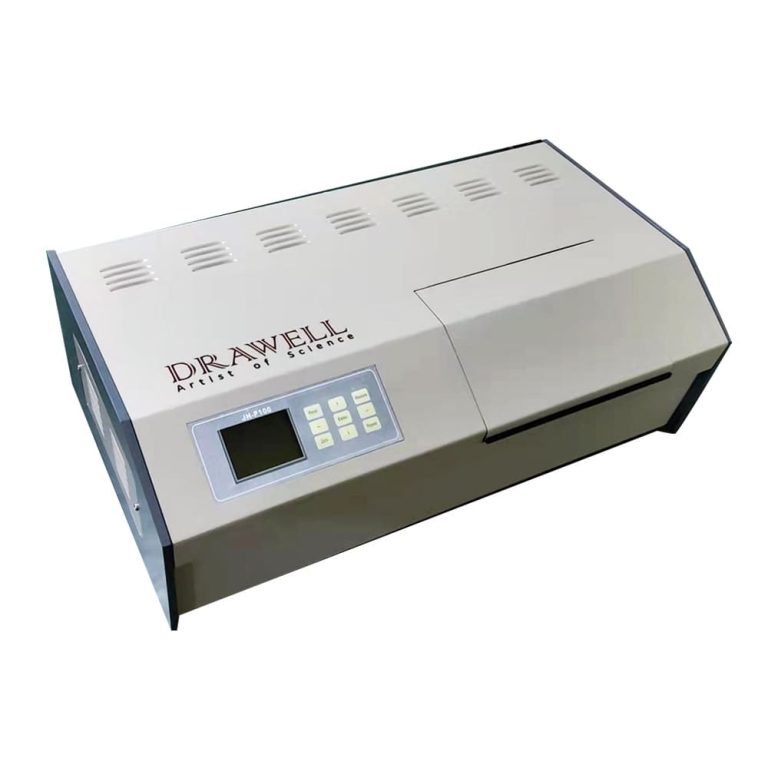What are Diverse Applications of Polarimeters
Polarimetry, a technique that measures the rotation of polarized light, plays a crucial role across various industries, including chemistry, pharmaceuticals, and food and beverage. Polarimeters are essential for determining the concentration, purity, and specific rotation of optically active substances. This article explores the practical applications of polarimeters and their significance in ensuring precision and accuracy across different fields.

Understanding the Basics of a Polarimeter
A polarimeter is an instrument that measures the rotation of plane-polarized light as it passes through an optically active substance, which can be in liquid, solid, or solution form. The degree of rotation depends on the concentration of the optically active compound and the length of the sample tube. The specific rotation, a critical parameter obtained through polarimetry, acts as a unique identifier for substances and is vital in numerous analytical processes.
Key Components of a Polarimeter
Polarizer: The polarizer generates plane-polarized light by allowing only light waves oscillating in a specific plane to pass through, creating a uniformly polarized beam.
Sample Tube or Cell: This clear container holds the substance being analyzed. The tube’s length and the substance’s concentration influence the degree of light rotation.
Analyzer: Positioned after the sample tube, the analyzer is another polarizing element that can be rotated to detect changes in the light's orientation caused by the optically active substance.
Light Source: A stable light source, typically a sodium lamp, produces the light beam that passes through the polarizer, sample, and analyzer. The wavelength is usually standardized for consistent measurements.
Readout Scale: The polarimeter includes a readout scale or digital display to indicate the angle of the analyzer’s rotation, which is then used to calculate the specific rotation of the sample.
Wide Practical Applications of a Polarimeter
Applications in Chemistry
Chiral Molecule Analysis: Polarimeters are crucial for studying chiral molecules with optical activity, particularly in the pharmaceutical industry, where the purity and concentration of chiral compounds affect drug efficacy.
Quality Control in Chemical Manufacturing: Polarimeters provide real-time data on chemical solution composition, ensuring that products meet strict quality standards.
Applications in Pharmaceuticals
Drug Development and Formulation: Polarimetry assists in accurately formulating drugs with specific concentrations of active ingredients, vital for the efficacy and safety of pharmaceutical products.
Quality Assurance in Pharmaceutical Production: Polarimeters verify the purity of raw materials and monitor the consistency of final products during the quality assurance process.
Applications in the Food and Beverage Industry
Sugar Content Determination: Polarimeters are widely used to measure sugar content, especially in the production of beverages, jams, and confectionery, ensuring consistent sweetness and product quality.
Quality Control in the Brewing Industry: Polarimetry monitors sugar concentration during fermentation, ensuring the production of high-quality beverages.
Applications in Instrumentation and Technology
Automatic and Digital Polarimeters: Modern automatic polarimeters feature automation and digital enhancements for more efficient and accurate measurements, improving usability and reliability.
Temperature Control Systems: Many polarimeters include temperature control systems, crucial for accurate and reproducible measurements across varying temperatures.

Educational and Research Use
Polarimeters are invaluable in educational settings and research laboratories, where they help students and researchers understand optical activity and conduct experiments that drive scientific advancements.
Conclusion
Polarimeters are indispensable tools in ensuring accuracy, quality, and efficiency across various industries. From pharmaceutical research to food and beverage quality control, these instruments continue to be essential for professionals and researchers dedicated to precision and reliability.
- Art
- Causes
- Crafts
- Dance
- Drinks
- Film
- Fitness
- Food
- Games
- Gardening
- Health
- Home
- Literature
- Music
- Networking
- Other
- Party
- Religion
- Shopping
- Sports
- Theater
- Wellness


